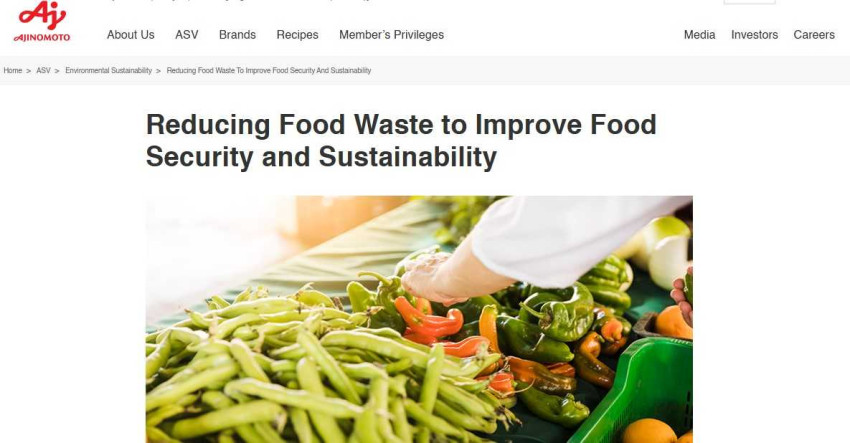
A Comprehensive Approach on how to Address the Food Waste in Malaysia and Increase Food Security
Introduction
Food waste is a global challenge that poses significant environmental, economic, and social implications. In Malaysia, like many other countries, a considerable amount of food is wasted throughout the supply chain, from production to consumption. Reducing food waste is not only essential for sustainable development but also crucial in ensuring food security and mitigating environmental impact. This article explores the various facets of food waste in Malaysia and proposes a comprehensive approach to tackle this issue.
Understanding the Scope of Food Waste in Malaysia
Malaysia, with its diverse culinary culture and booming population, faces a substantial challenge in managing food waste. The problem spans the entire supply chain, from agricultural production to consumption and disposal. Several factors contribute to the issue, including inefficient farming practices, inadequate storage and transportation facilities, and consumer behavior.
1. Improving Agricultural Practices
The journey of food waste often begins on the farm. In Malaysia, there is room for improvement in agricultural practices to minimize losses. Encouraging farmers to adopt precision agriculture techniques can help optimize production and reduce overcultivation. Additionally, promoting sustainable farming practices, such as organic farming and agroecology, can enhance crop resilience and reduce the need for chemical inputs, ultimately leading to less waste.
2. Enhancing Supply Chain Efficiency
Efficient supply chain management is crucial in minimizing food waste. In Malaysia, there is a need to invest in better storage and transportation infrastructure to prevent spoilage during transit. Implementing modern technologies like temperature-controlled storage and transportation can extend the shelf life of perishable goods, reducing losses at various stages of the supply chain.
3. Raising Consumer Awareness
Consumer behavior plays a significant role in food waste generation. Raising awareness about the impact of food waste on the environment and economy is essential. Educational campaigns can inform consumers about proper storage practices, understanding expiration dates, and the importance of buying only what is needed. Encouraging meal planning and responsible shopping can contribute to reducing food waste at the household level.
4. Reducing Retail and Restaurant Waste
Retailers and restaurants also contribute to food waste, with unsold items and leftovers being discarded regularly. Implementing measures such as dynamic pricing to encourage the sale of perishable items before they expire, donating unsold but still edible food to charities, and adopting sustainable packaging can help minimize waste generated by the retail and foodservice sectors.
5. Implementing Food Recovery Initiatives
Establishing food recovery programs is crucial for redistributing surplus food to those in need. Collaborations between food producers, retailers, and non-profit organizations can create effective channels for collecting and distributing excess food. Implementing tax incentives for businesses participating in such initiatives can further motivate their engagement.
Policy Interventions and Collaborative Efforts
Addressing food waste in Malaysia requires a comprehensive and coordinated effort involving government bodies, businesses, and the general public. Policymakers can play a pivotal role in implementing regulations and incentives to drive change.
1. Formulating Food Waste Reduction Policies
Government bodies can formulate and implement policies that target food waste reduction at different stages of the supply chain. This may include regulations on labeling, incentives for businesses adopting sustainable practices, and penalties for excessive waste generation.
2. Supporting Research and Innovation
Investing in research and innovation is crucial for developing sustainable solutions to address food waste. Funding research initiatives that focus on improving agricultural practices, developing innovative packaging, and creating efficient waste management systems can contribute significantly to the cause.
3. Fostering Public-Private Partnerships
Collaboration between the public and private sectors is essential for creating a holistic approach to tackle food waste. Public-private partnerships can lead to the development and implementation of innovative solutions, including technology-driven interventions, waste reduction campaigns, and sustainable business practices.
Conclusion
Reducing food waste in Malaysia requires a multifaceted approach that encompasses changes at every level of the supply chain. From improving agricultural practices to raising consumer awareness, implementing policy interventions to fostering collaborative efforts, each step plays a crucial role in addressing this pressing issue. With concerted efforts from government bodies, businesses, and the general public, Malaysia can pave the way for a more sustainable and responsible approach to food production and consumption. By doing so, the nation can contribute not only to its own well-being but also to the global effort in achieving a more sustainable and resilient food system.
#food security
#Ajinomoto













